
Just over a decade ago, five of the 15 members the Los Angeles City Council were female. Today, the L.A. City Council has only one woman. Why are women suddenly so underrepresented in Los Angeles politics? And why, after years of initial gains, has the number of women in leadership positions in business and government seemingly plateaued? In advance of the Zócalo event “Why Are There So Few Women in L.A. Politics?”, we asked several prominent Southern Californians for their take.
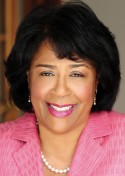
I can’t say for sure why there are so few women in L.A. politics, but I have a few hunches.
First, we know there are many capable women who have the energy, drive, and enthusiasm to run for elective office in Los Angeles, but not all are in the right position to start from the local ground up. I served on staff for several city councilmembers before I ran for office against an established candidate. Trying to parachute into elected office without experience serving in some capacity in the public sector is difficult. You are much better off when you can show voters something that translates to their needs and interests.
Second, there may be fewer women who were brought up and inspired to get involved in public service. I grew up in Ohio with two very civic-minded and activist parents. They emphasized the value of education, community engagement, and public service. They fought as early civil rights pioneers for fair housing, voting rights, and fair representation. I was taken by the hand and taught about all of this from an early age. My community engagement continued in college. At USC, I tutored at a local elementary school.
Third, while many women serve in public office in Los Angeles, what may be lacking is a system to train them to translate that experience into elected office.
Finally, I know many women would like to run for office but decline because of the public exposure for themselves and their families. I tell them lots of people want to go to heaven but don’t want to have to die to get there.
So what does it take to have an honorable career as an elected official?
Your decision to run should not be based on who you know but on a broader base of principles and ideas. You should be aware that voters are feeling increasingly disenfranchised because of special interests buying candidates into elected office.
You have to relate well to voters and get them to believe in you and your desire to serve. You have to be able to raise money, communicate ideas, and follow through on commitments.
A sense of humor helps.
Jan Perry served years serving on the Los Angeles City Council and, on July 1, 2013, was appointed by Mayor Eric Garcetti to the position of Interim General Manager of the Economic and Workforce Development Department.
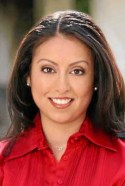
When I was in school, we had five women serving on the Los Angeles City Council; today I am the only woman serving as an elected official for the City of Los Angeles. How is it possible that in 2013, we have gone backwards in our representation in public office? There are several factors that I believe have contributed to the situation:
– Women are less likely than men to think they are qualified to run. There are many qualified women in our communities. However, a woman’s self doubts speak to deeply rooted gender perceptions and play a larger role than do men’s in decreasing the likelihood of considering a candidacy.
– Men are asked to run more frequently than women. It has been said that a woman needs to be asked seven times to run before she will decide to run. Recruitment and encouragement is the biggest hindrance in getting more women in elected office.
– Elected officials need to encourage women on their staff and in their communities to run and then support them when they do decide to run. According to a study by the Women & Politics Institute at the American University School of Public Affairs, 67 percent of women who are encouraged to run for office by a party leader or political activist will consider running, while only 33 percent who are not encouraged will consider it. But many women in office do not look to other women as their successors. We need to encourage girls and women to be part of government. We need to say it is okay for you as a woman to argue for what you believe is right.
One perspective, man or woman, isn’t better than the other. But understanding and appreciating a diversity of experiences and perspectives makes for good governance. Women make up at least 50 percent of the population, but in L.A. only one is sitting here at the table making decisions for the good of our city. We can and must do better.
Nury Martinez is the Councilwoman for the City of Los Angeles’s 6th District; representing the communities of Lake Balboa, Van Nuys, Arleta, Panorama City, Sun Valley and parts of North Hills and North Hollywood. She was elected in 2013 and is currently the City of Los Angeles’s only female elected official.
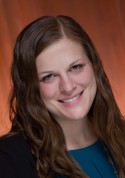
In 2012, political scientist Jennifer Lawless at American University published a study containing the only systematic, nationwide, empirical research into gender and political ambition. Through this research, we know that an “ambition gap” plays out in the following ways:
– Women are substantially less likely than men to demonstrate ambition to seek elective office
– Women are less likely than men to be recruited to run for office
– Women are less likely than men to think they are qualified to run for office
– Running for office remains a less attractive and feasible endeavor for women than for men
While it’s important to have the conversation about why we’re here, it’s even more important to do something about it. Organizations like Emerge California, the National Women’s Political Caucus, Close the Gap, California List, and others are working on addressing the underlying issues that cause fewer women to run and win.
Addressing those issues involves identifying and asking women to run, training them so they have the expertise it takes to overcome all of the unique challenges women face, connecting them to influential community leaders, political action committees, and donors so they have the support they need, and holding them accountable once they win to ensure they’re mentoring the next generation.
We can only make the progress we all want if we work together.
Lindsay Bubar is currently working with Emerge California, serves as the vice president of political action of the National Women’s Political Caucus, LA Westside and as a Los Angeles advisory board member of Running Start. Lindsay also served as the political director for the Wendy Greuel for Mayor campaign, working to elect what would have been the first female mayor in Los Angeles’ 232 year history.
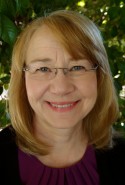
Thousands of women are involved in L.A. politics—as campaign donors and volunteers, members of boards and commissions, leaders of interest groups, and staff of elected officials. So why aren’t more women elected?
Each campaign is a competition between two or more people who want the same thing. Whether a woman is running, or elected, in this competition is the product of a volatile mixture of factors, including her character and competency, fundraising, the policy climate, the district, interests of powerbrokers, and her own hopes and dreams for her life.
Attitudes about women in leadership positions also play a role. Women hold a small minority of positions of power and influence in American society. Only 4 percent of Fortune 500 CEOs, 26 percent of university presidents, and 20 percent of nonprofit executives are women. Politics follows this trend: Women hold about 25 percent of seats in state legislatures and 20 percent in Congress.
We can’t change gender bias overnight. We can’t change the preference of powerbrokers to back only proven candidates who have run and won in the past. We can’t change a woman choosing time with her family over time on the campaign trail (and we shouldn’t try).
What we can do is prepare more talented women to run for office and then give them the support they need to win. We need more women serving in lower-level positions, so that qualified women are in the pipeline when a seat opens up. We need funding networks robust enough to level the playing field against a well-financed opponent and grassroots networks ready to mobilize.
Organizations such as Emerge, Close the Gap, California LIST, and EMILY’s List are already working to recruit more women. Each of us can help accelerate the pace of change by reaching out to an exceptional woman, urging her to run, and then investing our own time, credibility, and money to help her win.
Best known for managing U.S. Senator Barbara Boxer’s four winning Senate campaigns, Rose Kapolczynski has three decades of experience working for elected officials, political campaigns, and nonprofit organizations.
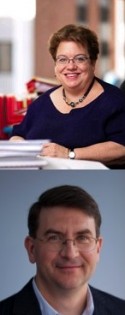
First of all, even in California, one of the most pro-women states in the country, voters are becoming less interested in electing women. Voters used to think women candidates represented change and more honest government. Now, voters think women make less of a difference and often act like men. In our focus groups, women voters said we already have women: Boxer, Feinstein, Clinton, Palin, and Whitman. This is especially true for younger women voters, who are more interested in electing candidates who are young, gay, or of color.
Secondly, in tough times voters are often less likely to vote for women. They say they will vote for a woman “if she is qualified” but don’t add that caveat for men. Our research in campaigns and for the Barbara Lee Family Foundation shows that women need to establish their job qualifications early on, but many women run campaigns based heavily on a personal story rather than credentials.
Thirdly, recruitment of women has become more difficult. Women have shown they can raise money, but many don’t want to. They are also more likely than men to launch nonprofits, which they think will make more of a difference. Finally, women feel they lack the money networks to run for office. (That’s the number-one thing women in the pipeline want fixed, according to our work for the Parity Project.)
More research is needed to understand what is going on in Los Angeles and to make sure this trend gets turned around before it goes national.
Celinda Lake and David Mermin are partners of Lake Research Partners, a polling firm. Mermin is head of the California office. Lake has decades of experience on women candidates.



